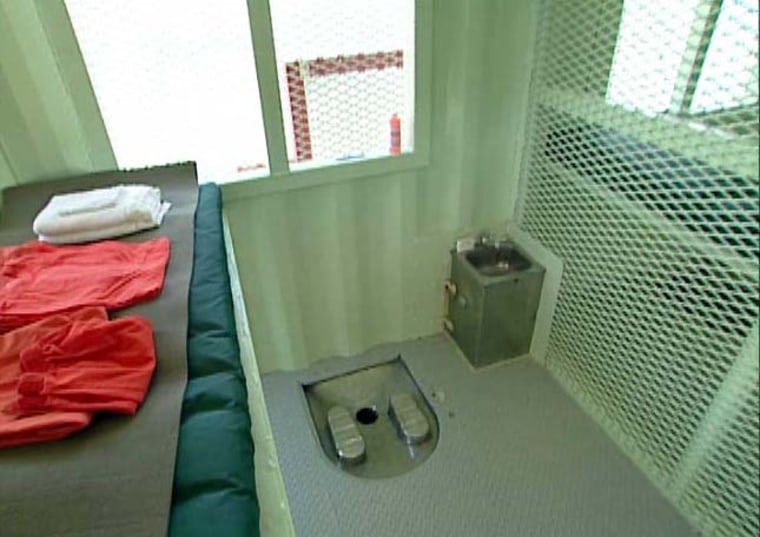Inside the wire at Camp Delta, the U.S. military says it’s engaged in a daily battle in the war on terrorism.
“Joint Task Force Guantanamo’s mission is to detain enemy combatants to develop intelligence to help our nation and our allies win our war on terror,” said commander Maj. Gen. Geoff Miller.
In a drab complex, wrapped in razor wire, hundreds of interrogations are conducted each week, searching for scraps of intelligence on al-Qaida operations from the 610 detainees captured in Afghanistan and Pakistan.
Steve Rodriguez, the chief of interrogations, said: “Providing information that may prevent a future attack anywhere in the world and that’s our primary focus.”
U.S. officials say detainees can be interrogated up to 10 hours straight — but not tortured — anytime, day or night.
The questioning is done in small air-conditioned rooms equipped with surveillance cameras and panic buttons, monitored closely by MP’s in case a detainee becomes violent.
In one of the interrogation rooms, the linguist and interrogator sit at a table, while the detainee sits across the room on a metal chair, shackled at all times to a metal ring in the floor. The entire process is observed by other members of the interrogation team through a two-way mirror.

The intelligence gathered here is plugged into a data bank and within 24 hours can be passed to U.S. troops in Afghanistan and Iraq.
“That information is timely, current and actionable,” Rodriguez added.
But most detainees have been here up to two years. So, is any of their information still useful?
Military officials claim detainees have provided valuable details of al-Qaida operations and locations of its mountain hideouts and escape routes — intelligence now being used in the hunt for Osama bin Laden.
“So that type of information goes to the field and is used in ongoing operations now,” said commander Miller.
U.S. officials also say information gathered here has helped break up terrorist cells and fund-raising in North America and Europe.
But many of these detainees are expected to soon be released, and the concern is what untold secrets they’ll take with them.